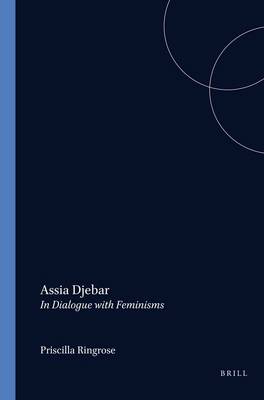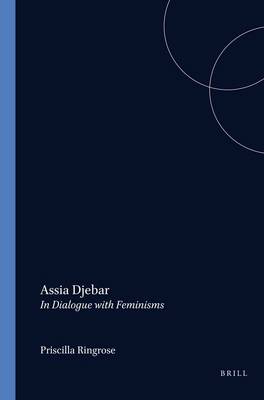
- Afhalen na 1 uur in een winkel met voorraad
- Gratis thuislevering in België vanaf € 30
- Ruim aanbod met 7 miljoen producten
- Afhalen na 1 uur in een winkel met voorraad
- Gratis thuislevering in België vanaf € 30
- Ruim aanbod met 7 miljoen producten
Zoeken
Omschrijving
What are the political implications of an Arab feminist writing practice? How do the works of Assia Djebar, Algeria's internationally acclaimed francophone writer, relate to the priorities and perspectives of both Western and Arab feminist politics? Does Djebar succeed in her aim of reclaiming the history of her homeland, and of her religion, Islam, for women? Or in reclaiming the sexuality of Arab women?
In Assia Djebar: In Dialogue with Feminisms, Priscilla Ringrose uncovers the mechanisms of Djebar's revisionary feminism and examines the echoes and dissonances between what Djebar terms her "own kind of feminism" and the thinking of French and Arab feminists such as Irigaray, Cixous, Kristeva, Mernissi and Ahmed. Arguing that Djebar's work is in constant dialogue with other feminisms, Ringrose assesses the strengths and weaknesses of its ideals and identifies their own particular intervention into current political and cultural debates.
This book will appeal not only to scholars working on Djebar, but also to students of colonial history, women's studies and cultural politics.
In Assia Djebar: In Dialogue with Feminisms, Priscilla Ringrose uncovers the mechanisms of Djebar's revisionary feminism and examines the echoes and dissonances between what Djebar terms her "own kind of feminism" and the thinking of French and Arab feminists such as Irigaray, Cixous, Kristeva, Mernissi and Ahmed. Arguing that Djebar's work is in constant dialogue with other feminisms, Ringrose assesses the strengths and weaknesses of its ideals and identifies their own particular intervention into current political and cultural debates.
This book will appeal not only to scholars working on Djebar, but also to students of colonial history, women's studies and cultural politics.
Specificaties
Betrokkenen
- Auteur(s):
- Uitgeverij:
Inhoud
- Aantal bladzijden:
- 268
- Taal:
- Engels
- Reeks:
- Reeksnummer:
- nr. 3
Eigenschappen
- Productcode (EAN):
- 9789042017399
- Verschijningsdatum:
- 1/01/2006
- Uitvoering:
- Paperback
- Formaat:
- Trade paperback (VS)
- Afmetingen:
- 155 mm x 235 mm
- Gewicht:
- 421 g

Alleen bij Standaard Boekhandel
+ 283 punten op je klantenkaart van Standaard Boekhandel
Beoordelingen
We publiceren alleen reviews die voldoen aan de voorwaarden voor reviews. Bekijk onze voorwaarden voor reviews.








